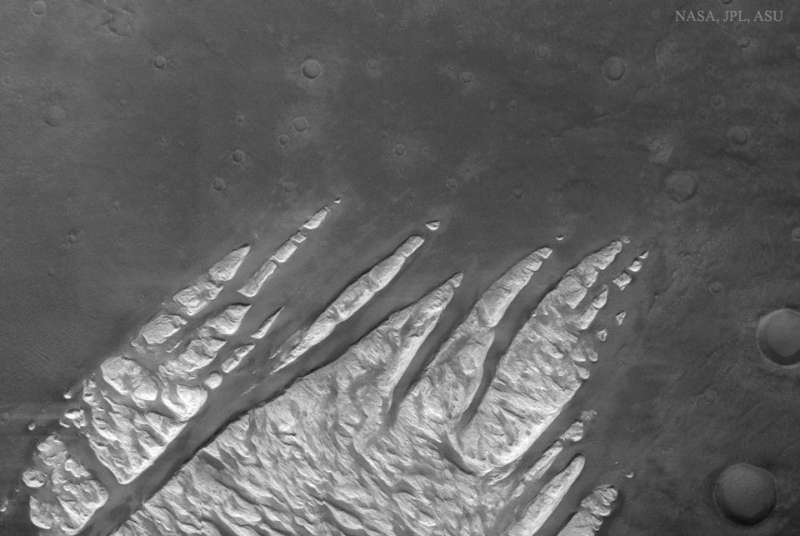
|
Explanation: What caused this unusual light rock formation on Mars? Intrigued by the possibility that they could be salt deposits left over as an ancient lakebed dried-up, detailed studies of these fingers now indicate a more mundane possibility: volcanic ash. Studying the exact color of the formation indicated the possible volcanic origin. The light material appears to have eroded away from surrounding area, indicating a very low-density substance. The stark contrast between the rocks and the surrounding sand is compounded by the unusual darkness of the sand. The featured picture was taken with the Thermal Emission Imaging System on the Mars Odyssey, the longest serving spacecraft currently orbiting Mars. The image spans about 10 kilometers inside a larger crater.
|
January February March April May June July August September October November December |
| ||||||||||||||||||||||||||||||||||||||||||||||||
NASA Web Site Statements, Warnings, and Disclaimers
NASA Official: Jay Norris. Specific rights apply.
A service of: LHEA at NASA / GSFC
& Michigan Tech. U.
Based on Astronomy Picture
Of the Day
Publications with keywords: Mars
Publications with words: Mars
See also:
- APOD: 2025 September 28 Á Leopard Spots on Martian Rocks
- APOD: 2025 July 15 Á Collapse in Hebes Chasma on Mars
- APOD: 2025 July 6 Á The Spiral North Pole of Mars
- APOD: 2025 June 29 Á Dark Sand Cascades on Mars
- APOD: 2025 June 22 Á A Berry Bowl of Martian Spherules
- APOD: 2025 June 15 Á Two Worlds One Sun
- Perseverance Selfie with Ingenuity
